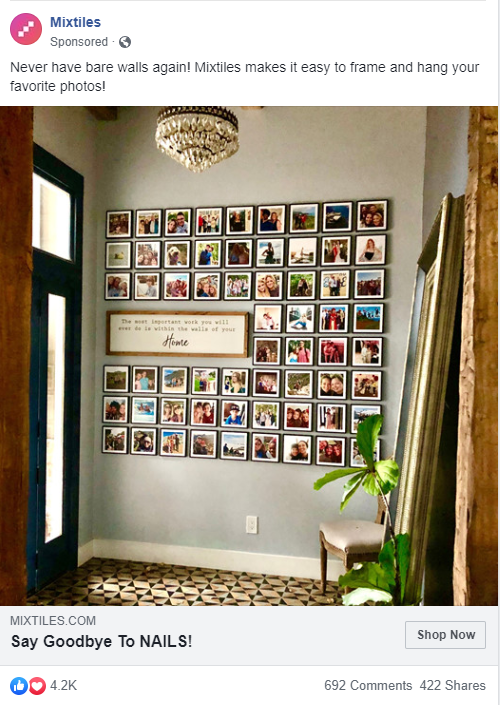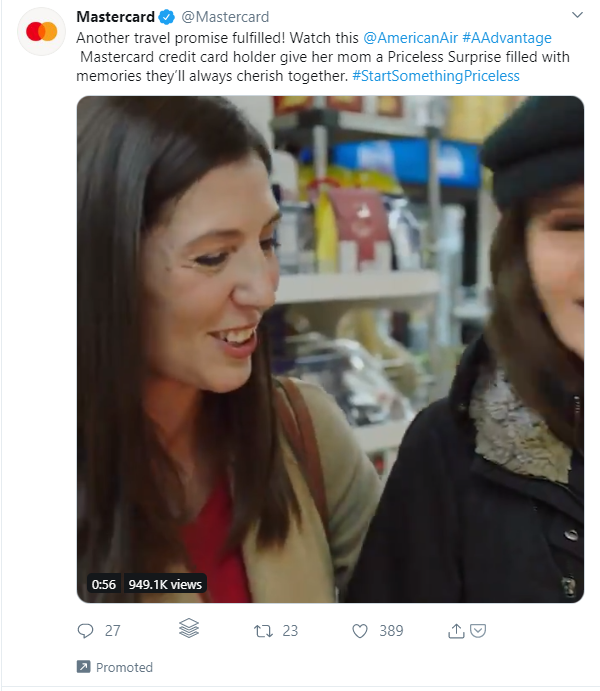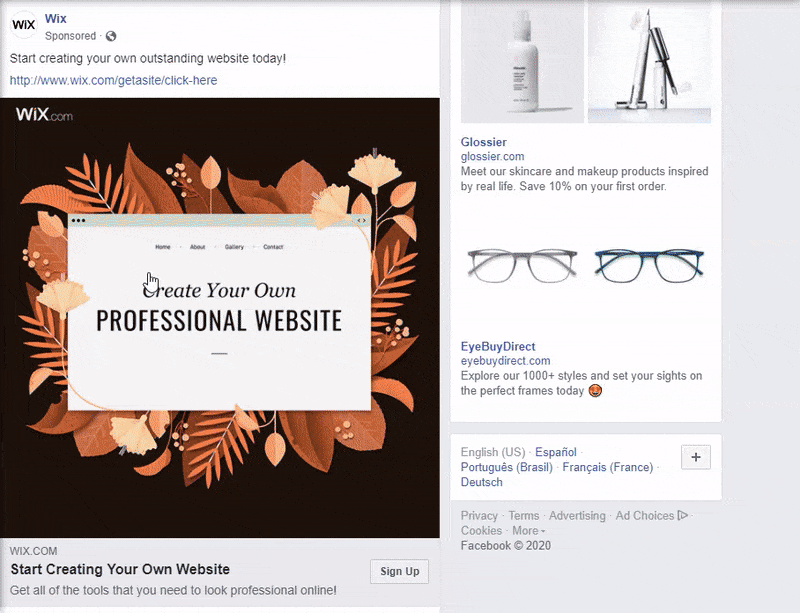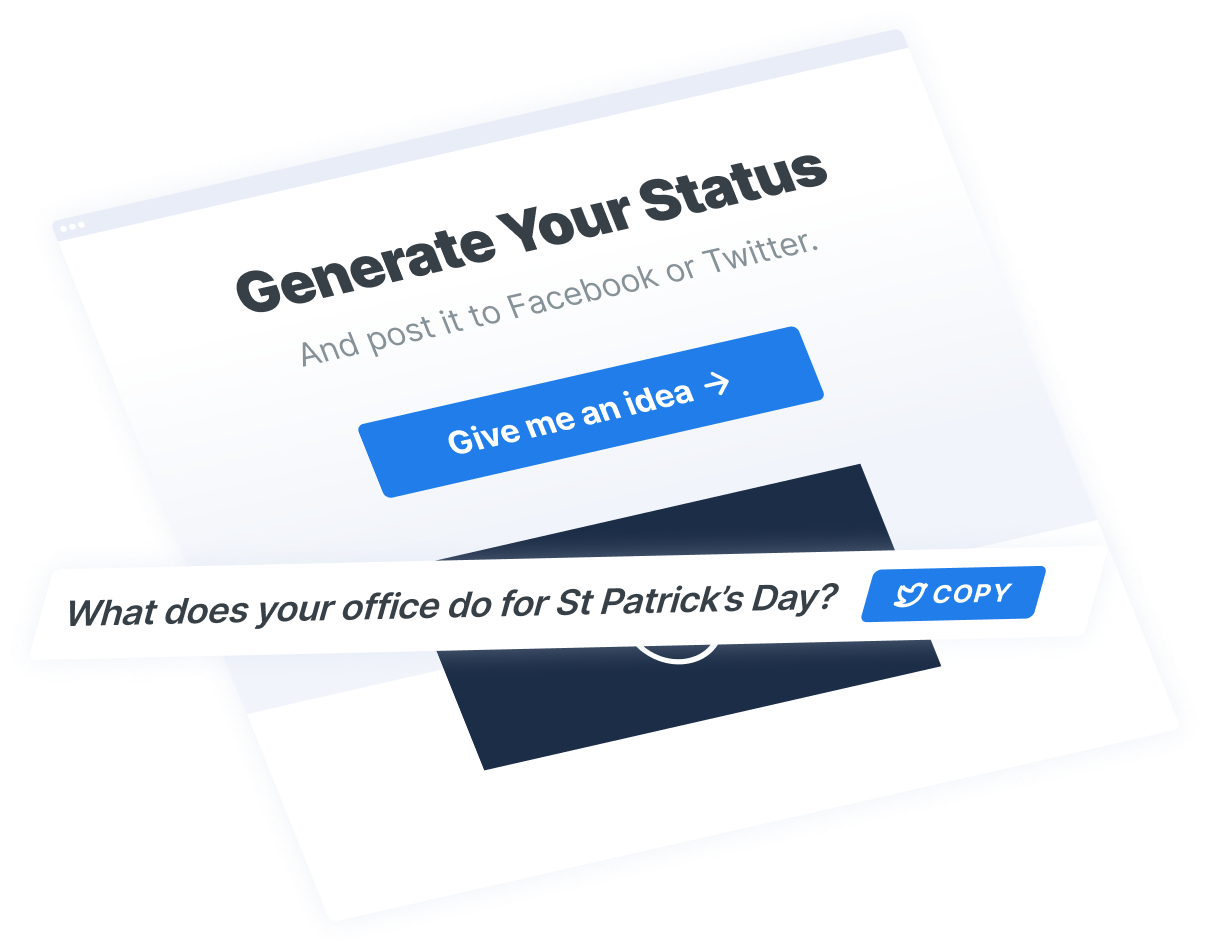- Home
- Blog
- Social Media
- Organic vs. Paid Social Media Marketing: Your Social Dies Without Both
Organic vs. Paid Social Media Marketing: Your Social Dies Without Both
-
 11 min. read
11 min. read
-
 Sam Wixted
Sam Wixted Content Writer
Content Writer
- Sam has been writing for WebFX since 2016 and focuses on UX, crafting amazing website experiences, and digital marketing In her free time, she likes to spend time on the beach, play with her cats, and go fishing with her husband.
Organic or paid social media marketing — which drives better business results?
Watch the video below (then keep reading) to learn more.
If you own a business, you’re probably no stranger to the organic vs. paid social media debate. Fortunately, we have answers. In this post, we’ll explain why you need both organic and paid social media marketing for a successful social presence in 2025.
Keep reading to learn the differences between organic vs. paid social media marketing, why you need them both, and how they can benefit your business. Want to learn more about organic and paid social media strategies for your business? WebFX can help! Give us a ring at 888-601-5359 to chat with a social media specialist!
Understanding organic vs. paid social media marketing
Let’s first start by chatting a little about the differences in organic and paid social media marketing. Although they do have some similarities, it’s in the differences that you’ll find their worth.
What is organic social media marketing?
Organic social media marketing refers to sharing unpaid posts and updates on your company’s social media pages.
You can share organic posts on all social platforms, and organic posts encompass a variety of formats, including:
- Text, image, and video posts
- Posts with hashtags
- Posts with links
- Event listings
- And more
As you can see, many post types fall under the category of organic social media marketing. You can use organic social media posts to:
- Promoting an existing product
- Inform users about a new product
- Share blog posts, articles, and industry news
- Encourage people to visit your website
- Invite followers to attend an event
- And more
No matter the post type, it’s not considered paid social media marketing unless there’s a budget behind it. Furthermore, the posts you might make every day sharing a blog post from your website with your social followers is also known as an organic post. For example, below is a blog post that Bolde created and shared on their Facebook page.
It’s not sponsored, boosted, or an ad, so it’s an organic social post. 
What is paid social media marketing?
Now, let’s talk about paid social media marketing.
As you might have guessed, paid social marketing is when you pay to advertise on social media sites.
Paid social media marketing includes strategies like:
- Boosted posts
- Sponsored posts
- Text, image, and video ads
- And more
These marketing strategies are considered paid social media marketing since you have to put some marketing dollars behind them. Take this sponsored Mixtiles post on Facebook, for example.  Or this promoted Mastercard video post on Twitter.
Or this promoted Mastercard video post on Twitter.  You have to pay for sponsored and promoted posts, making these posts part of a paid social media marketing strategy.
You have to pay for sponsored and promoted posts, making these posts part of a paid social media marketing strategy.
On the other hand, Glossier makes it a little more obvious that they’ve sprung for the paid option. You can easily tell that their ad is part of a paid social media promotion.  Keep in mind that there are organic and paid social media options for nearly every platform, not just Facebook and Twitter.
Keep in mind that there are organic and paid social media options for nearly every platform, not just Facebook and Twitter.
Why you need organic social media marketing
When it comes to organic vs. paid social media marketing, they should come as a package deal, but let’s first talk about why you need organic social media marketing.
Organic social media marketing can be difficult since, for example, a staggering 70% of Instagram posts aren’t even seen by your followers. So why bother posting organically?
There are lots of reasons.
1. It shows brand consistency
Let’s say that a user’s first interaction with your brand is through an ad. That’s all well and fine, but what happens when they visit your social media account and there’s nothing there? Posting organically on your social platforms helps you build a robust social media presence that users can look at when they want to learn more about your brand.
For example, I ran into my first ad for Discovery Cove, an all-inclusive day resort located in Orlando, about a week ago. My love for animals sparked my curiosity, and I immediately jumped onto their Instagram page to see what I could learn about the experiences they offer.  Turns out that they are home to all kinds of animals including flamingos, dolphins, stingrays, and more — and I learned all of that from their Instagram account.
Turns out that they are home to all kinds of animals including flamingos, dolphins, stingrays, and more — and I learned all of that from their Instagram account.
If nothing else, embracing organic marketing and posting organically can inform users about your business when they visit your social profiles.
2. It builds brand awareness
No matter how many people see your organic posts, you can rest assured that your organic social efforts are benefiting you in some way. One of those ways? Building brand awareness.
The more a user is exposed to your brand, whether it’s an organic post or a paid post, the more you’ll create brand awareness and loyalty. When you use organic posts, you’ll become a steady part of users’ timelines and streams, which will help users become familiar with your brand — making them more likely to become a customer.
3. It fills the gaps
So, let’s say someone opens their Instagram app right as you fire an organic post that shows a teaser for a new product. That person has been exposed to your brand more than they would have been had you not posted organically — and they know about a new product that’s coming.
The users that do see your organic posts are essentially getting a double-dose of your brand — making it worth it to use organic posts to fill the gaps of time when users aren’t exposed to your paid social posts.
4. If you have a big following, it’s extremely effective
If you have thousands of followers, organic social media marketing can be a great way to reach your customers. Having a greater following increases the number of users that will see your posts. For example, think of all the celebrity influencers out there that post personal content on their accounts organically.
They could post about a new workout set that they purchased or a new product that they love. Those organic posts don’t have to be sponsored for them to be seen, simply because they have such an incredible following. For example, Harry Styles posted this teaser for his new video organically, and it garnered over 745,500 views in under 40 minutes.
In that same timeframe, it also drew a staggering 18.4k comments.  Harry Styles has approximately 26.3 million followers — making it easy to understand why an organic post could get so much attention. Keep in mind that your business doesn’t have to have millions of followers for organic posts to be effective.
Harry Styles has approximately 26.3 million followers — making it easy to understand why an organic post could get so much attention. Keep in mind that your business doesn’t have to have millions of followers for organic posts to be effective.
Even a few hundred followers mean you’ll have some interaction with organic posts.
Why you need paid social media marketing
Now that we’ve talked about the reasons you need organic social media marketing, let’s talk about why you need paid social media marketing.
RELATED READING: 5 examples of the best social ad campaigns
1. You can increase leads and conversions
Overall, paid social media marketing is a great way to increase leads and conversions for your business.
Did you ever hear the phrase “You get what you pay for”? This is a great example that illustrates that sentiment perfectly.
Although organic social media marketing is necessary, you don’t pay for it, and therefore, you can’t expect to increase sales and revenue on organic posts alone. On the other hand, you can put as much or as little budget behind your paid social media marketing campaign, and it’s much more likely that you’ll get leads — simply because of ad targeting options and the nature of an ad.
2. You can retarget on social media
With organic social media marketing, you simply post content that goes out into the world — and that’s it. With paid social media marketing, on the other hand, you can retarget customers who have shown interest in your products before. For example, if a user visited your website and browsed your products, you can use cookies to retarget them with social media ads.
Then, they’ll see ads for your products in their social feeds.
YOU MIGHT BE INTERESTED IN: 8 best practices for ad retargeting
This is a huge benefit of using paid social media marketing because it can help you recapture interested customers who may have forgotten to make a purchase, became uninterested, or were in the process of deciding. It’s a great way to win them over and increase sales.
3. You can target specific customers
With organic social posts, there are no targeting options. Whoever is scrolling through their timeline can stumble upon your post. However, with paid social media advertising, you can target users who you know to be interested in your products and services.
You can target them in a variety of ways including:
- Demographics
- Interests
- Online behavior
- Education level
- Marital status
- And so much more
This kind of targeting allows you to put your products in front of an audience that is most likely to purchase from you.
4. You can take users to your website
Of course, you can post links to your blog or your website in organic posts, but with paid social media marketing, you’ll have a much better chance of getting users to your website. That’s thanks to the help of call-to-action (CTA) buttons, which help entice users to take action. This action could be any of the following options:
- Visit your site
- Fill out a form
- Learn more
- Buy now
- Contact now
- Sign up for a newsletter
Most of the time, all of these actions lead users to your website. For example, if they want to learn more about a product, you could create a landing page on your site that outlines the product in all of its glory. Not only does this CTA take users to your website, but it also creates an easy, hassle-free way for them to make an immediate purchase.
For example, when I click the “Sign Up” button on Wix’s ad on Facebook, it takes me directly to their website to sign up for their product. 
Why you need an organic and paid social media strategy
At the end of the day, you’ll need both an organic and a paid social media marketing strategy to succeed on your social platforms.
Both offer tremendous marketing benefits that allow you to build brand awareness, sell more products, and create brand loyalty on a variety of social media platforms. Of course, you could choose to opt for one over the other, but both strategies feed off one another, and both prove to be stronger when paired.
Work with an agency that understands organic vs. paid social media marketing
If you want your organic and paid social media strategy to be effective, it’s important to work with a social media marketing agency that understands organic vs. paid social options. At WebFX, we have a whole team of social media marketing specialists who have published more than 165,000 social posts for clients, and they know the ins and outs of both organic and paid social marketing. If you’re ready to get started, contact us online for a free quote or give us a call at 888-601-5359!
-
 Sam has been writing for WebFX since 2016 and focuses on UX, crafting amazing website experiences, and digital marketing In her free time, she likes to spend time on the beach, play with her cats, and go fishing with her husband.
Sam has been writing for WebFX since 2016 and focuses on UX, crafting amazing website experiences, and digital marketing In her free time, she likes to spend time on the beach, play with her cats, and go fishing with her husband. -

WebFX is a full-service marketing agency with 1,100+ client reviews and a 4.9-star rating on Clutch! Find out how our expert team and revenue-accelerating tech can drive results for you! Learn more
Twitter and Facebook Status Generator
Finding engaging social media content for your business can be difficult. Use our tool to quickly find ideas and post directly to your page.
Give Me an Idea

Social Media Success Story

Proven Marketing Strategies
Twitter and Facebook Status Generator
Finding engaging social media content for your business can be difficult. Use our tool to quickly find ideas and post directly to your page.
Give Me an Idea
What to read next





